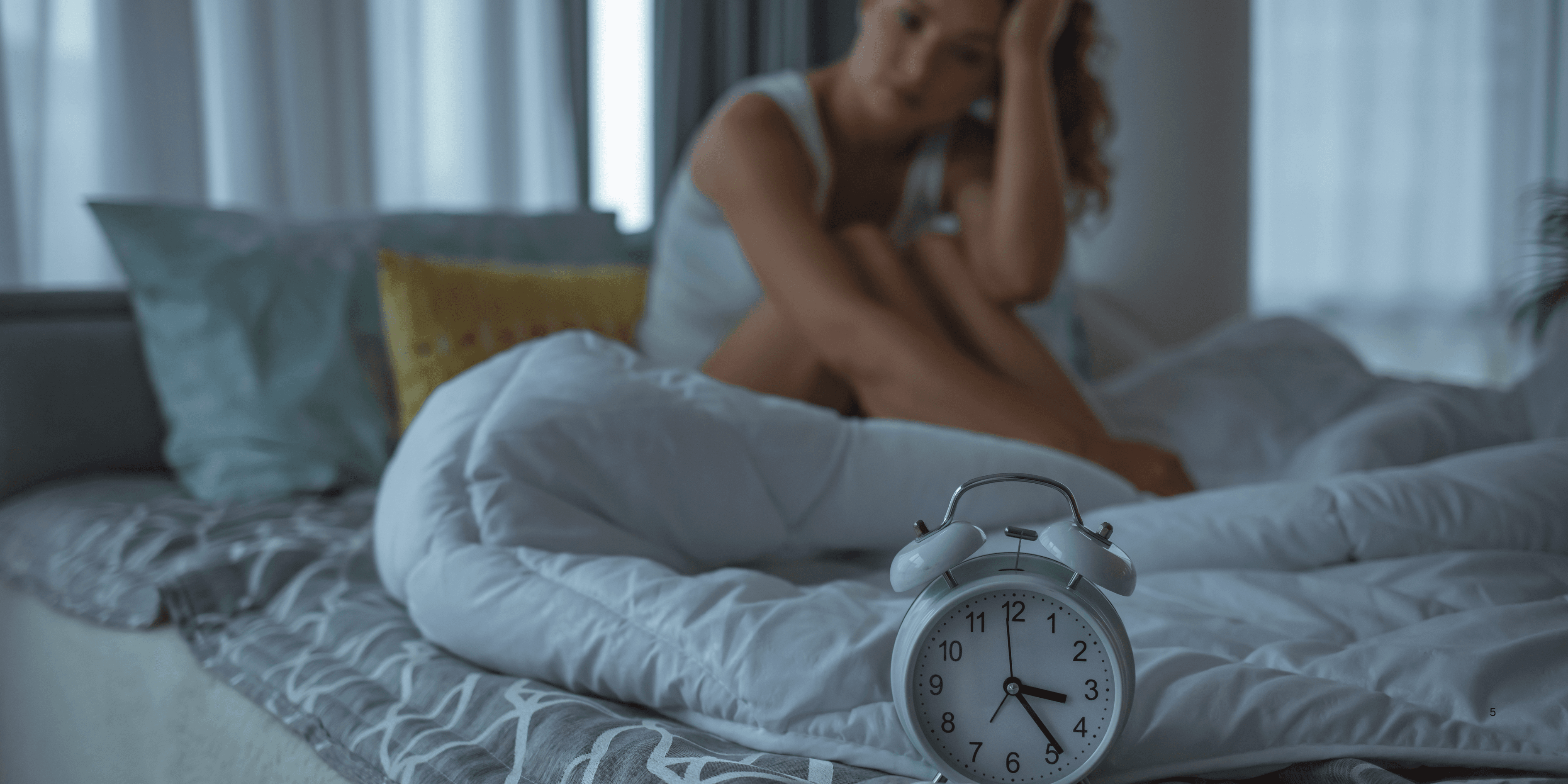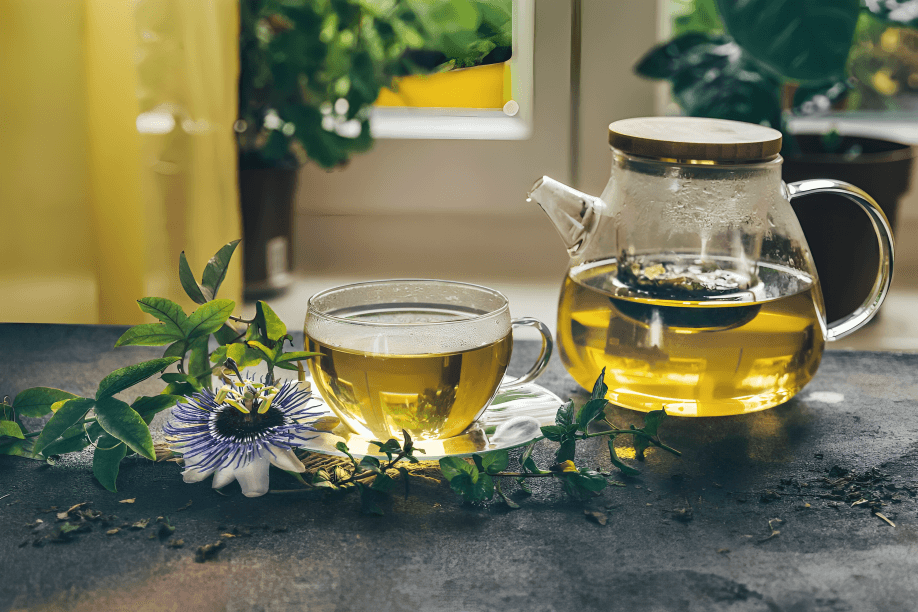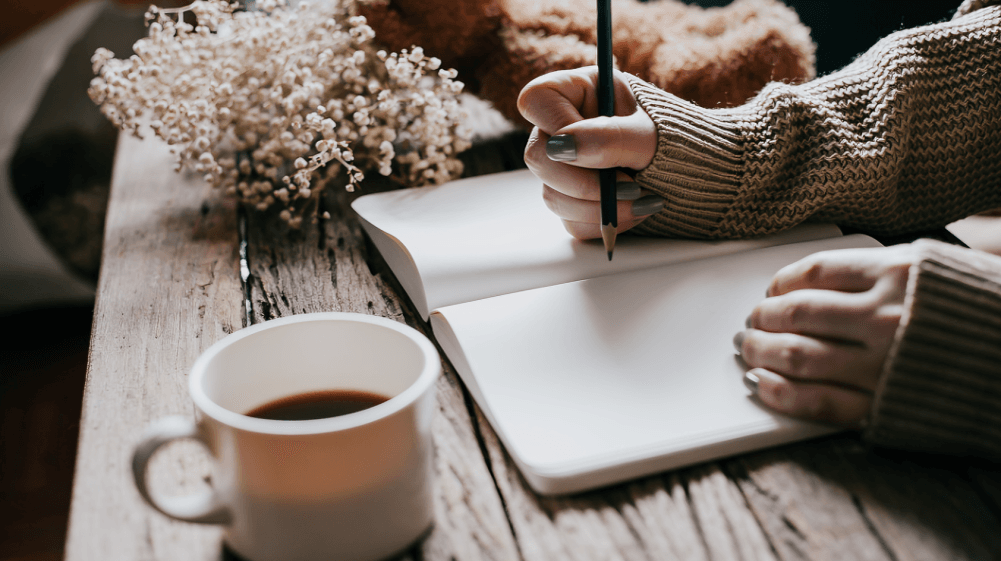
“
Getting restful sleep is vital for your health, and finding natural ways to reduce insomnia can lead to long-term healing without harsh side effects. Unlike medications, which may cause dependence, natural approaches like routine, relaxation, and nutrition often bring lasting results. 1
1
”
Avoiding caffeine after midday prevents stimulation of the nervous system, making it easier to fall asleep; caffeine is a known sleep disruptor that lingers for hours in the bloodstream. 1
Reducing screen exposure at night supports melatonin production, the hormone responsible for regulating sleep. Blue light from phones or TVs signals the brain to stay awake unnaturally. 2
Ancient Greek physician Hippocrates believed lifestyle influenced sleep quality; his emphasis on rest, balance, and diet aligns with modern advice for restoring a healthy body-mind rhythm. 3

Drinking herbal teas like chamomile or valerian root before bed helps soothe the nervous system. These herbs have been used for centuries in traditional medicine to encourage natural relaxation.
Magnesium-rich foods like spinach, almonds, and bananas help regulate neurotransmitters that influence sleep. Magnesium deficiencies have been linked to higher rates of insomnia. 4
Limiting naps during the day encourages stronger sleep pressure at night. While short naps can help recharge, long or late naps can disrupt your body’s sleep-wake cycle completely. 5
Journaling your thoughts before bedtime can reduce anxiety. Writing down worries allows the mind to unload mental clutter, clearing space for peaceful rest without emotional interference. 6
Essential oils like lavender and sandalwood have calming properties. Using them in diffusers or baths can trigger relaxation responses, guiding the body gently into a more restful state. 7
Eating a light dinner at least two hours before bed supports digestion and sleep. Heavy meals can cause discomfort, disrupting the body's natural transition to rest mode during the evening. 8

Practicing gratitude before bed rewires the brain towards positivity. A relaxed, thankful mindset helps reduce stress and cortisol, making it easier to drift into natural, undisturbed sleep.
Avoiding alcohol before bedtime supports deeper sleep cycles. Though it may cause initial drowsiness, alcohol disrupts REM sleep and increases nighttime awakenings and dehydration. 9
Establishing a calming bedtime ritual—such as reading or listening to soft music—signals your brain that it's time to wind down, which trains your body to expect and prepare for rest. 10
Keeping the bedroom reserved for sleep and intimacy only helps the brain associate the space with rest. Avoid working or watching TV in bed to maintain that crucial mental boundary. 11
Staying hydrated throughout the day prevents nighttime thirst or cramping, but it’s wise to reduce fluids before bed to avoid disruptive bathroom trips that can interrupt deep sleep. 12

Exposure to natural daylight early in the day reinforces your circadian rhythm. Morning sunlight tells your brain it's time to be alert and helps you feel sleepy again when night returns.
Progressive muscle relaxation, where you tighten and release muscles gradually, relaxes the body. This physical unwinding leads to mental calm, helping with a more natural transition into sleep. 13
Avoiding stressful news or emotionally charged conversations before bed allows your brain to rest. Late-night stressors trigger adrenaline, delaying your body’s shift into a sleep-ready state. 14
Keeping a sleep diary to track patterns, wake times, food intake, and stress levels can reveal behavioral clues and lead to changes that naturally reduce insomnia through self-awareness. 15
Focusing on acceptance rather than frustration during sleepless moments—like letting go of the urge to force sleep—reduces anxiety, which ironically allows the body to sleep more easily. 16
Swiss philosopher Paracelsus believed that nature offered remedies for every ailment. Modern science supports that idea, showing natural ways to reduce insomnia, like herbs, habits, and light therapy, really do work. 17


